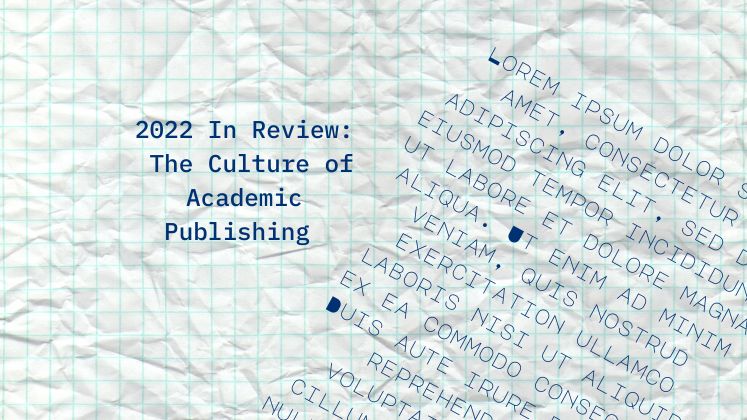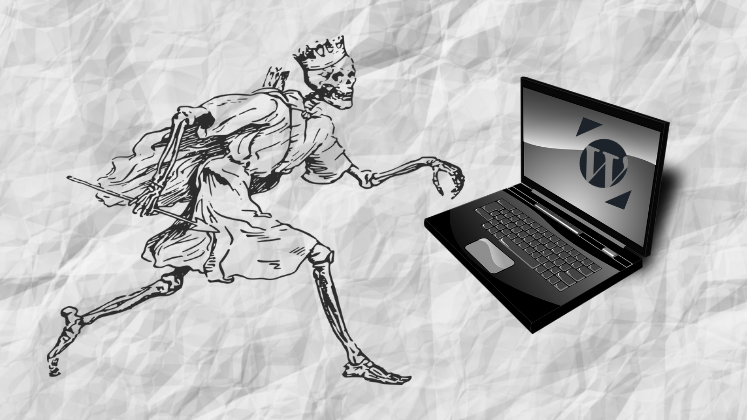This post brings together ten of the best pieces focused on the practice and particularities of academic writing published on the LSE Impact Blog in 2022.
New AI tools that can write student essays require educators to rethink teaching and assessment
 AI tools are available today that can write compelling university level essays. Taking an example of sample essay produced by the GPT-3 transformer, Mike Sharples discusses the implications of this technology for higher education and argues that they should be used to enhance pedagogy, rather than accelerating an ongoing arms race between increasingly sophisticated fraudsters and fraud detectors.
AI tools are available today that can write compelling university level essays. Taking an example of sample essay produced by the GPT-3 transformer, Mike Sharples discusses the implications of this technology for higher education and argues that they should be used to enhance pedagogy, rather than accelerating an ongoing arms race between increasingly sophisticated fraudsters and fraud detectors.
Lives change across academic careers – so should your writing habits
 Are your writing habits the same as they were when you started your academic career? Are your lifestyle and responsibilities the same? In this post, Chris Smith explores how writing habits formed at the beginning of academic careers can be difficult to change later on and suggests mindfully reassessing your writing practice can help reshape it to meet your needs.
Are your writing habits the same as they were when you started your academic career? Are your lifestyle and responsibilities the same? In this post, Chris Smith explores how writing habits formed at the beginning of academic careers can be difficult to change later on and suggests mindfully reassessing your writing practice can help reshape it to meet your needs.
Aphorism and twitter – A distinct medium for constructing knowledge
 Twitter can be written off as a distinctly unserious medium, a place for fads, bullying and the latest cat videos. However, as Steve Fuller discusses the unique format of a tweet can also be a space for concision, constructive ambiguity as well as a technology for teaching complex ideas.
Twitter can be written off as a distinctly unserious medium, a place for fads, bullying and the latest cat videos. However, as Steve Fuller discusses the unique format of a tweet can also be a space for concision, constructive ambiguity as well as a technology for teaching complex ideas.
Research Rituals – Finding the value of writing accountability groups
 Academia, especially at PhD and Post-Doctoral level, is often associated with individual work and isolation. Reflecting on her experience of designing, facilitating, and working in writing accountability groups, Ann Gillian Chu discusses how to forge effective writing groups and the value they offer in relation to building academic community.
Academia, especially at PhD and Post-Doctoral level, is often associated with individual work and isolation. Reflecting on her experience of designing, facilitating, and working in writing accountability groups, Ann Gillian Chu discusses how to forge effective writing groups and the value they offer in relation to building academic community.
Should you be highlighting that paper you’re reading?
 The chances are at some point you have looked at a text you have been highlighting, digitally, or in the traditional fashion with a highlighter, and thought, what do these blocks of fluorescent colour actually mean? In this cross post, Pat Thomson discusses effective highlighting practices and how they can contribute to learning.
The chances are at some point you have looked at a text you have been highlighting, digitally, or in the traditional fashion with a highlighter, and thought, what do these blocks of fluorescent colour actually mean? In this cross post, Pat Thomson discusses effective highlighting practices and how they can contribute to learning.
How academics review books (and each other)
 The editorial guidelines for academic book reviews regularly instruct authors to focus on the content of the works being reviewed, rather than the authors. But, how far does this hold true in practice? Drawing on evidence from historical book reviews, Sjang ten Hagen argues the personal has in fact played a prominent role in book reviewing and that the medium performs an as yet underestimated role in shaping the boundaries of academic communities.
The editorial guidelines for academic book reviews regularly instruct authors to focus on the content of the works being reviewed, rather than the authors. But, how far does this hold true in practice? Drawing on evidence from historical book reviews, Sjang ten Hagen argues the personal has in fact played a prominent role in book reviewing and that the medium performs an as yet underestimated role in shaping the boundaries of academic communities.
5 Strategies for Hitting a Writing Deadline
 To adapt the well-known saying: there are few constants in academia other than death and deadlines. Drawing on their experience as a writing coach and author, Delia Lloyd presents five strategies for getting writing done when you really need to.
To adapt the well-known saying: there are few constants in academia other than death and deadlines. Drawing on their experience as a writing coach and author, Delia Lloyd presents five strategies for getting writing done when you really need to.
Descriptive statistics are essential to making complex analyses useful.
 In response to the ever-growing volume of data, quantitative social research has become increasingly dependent on complex inferential methods. In this post, Kevin R. Murphy argues that whilst these methods can provide insights, they should not detract from the significance of the comparatively simple descriptive statistics often found in table 1, which play an important role in communicating the significance of the research to policymakers and other research users.
In response to the ever-growing volume of data, quantitative social research has become increasingly dependent on complex inferential methods. In this post, Kevin R. Murphy argues that whilst these methods can provide insights, they should not detract from the significance of the comparatively simple descriptive statistics often found in table 1, which play an important role in communicating the significance of the research to policymakers and other research users.
What does Open Science mean for disciplines where pen and paper are still the main working methods?
 Open Science and its wider application to the social sciences and humanities, is predicated on the idea that research can be reproduced and shared across digital platforms, but to what extent do researchers actually use digital tools a part of their work? Commenting on a recent study into the workflows of social scientists and humanities researchers, Deirdre Watchorn argues open science policies should adopt more nuanced approach to these different kinds of research.
Open Science and its wider application to the social sciences and humanities, is predicated on the idea that research can be reproduced and shared across digital platforms, but to what extent do researchers actually use digital tools a part of their work? Commenting on a recent study into the workflows of social scientists and humanities researchers, Deirdre Watchorn argues open science policies should adopt more nuanced approach to these different kinds of research.
The devil’s in the framing: language and bias
 How we say things can be as important as what we say. In this post, Ella Whiteley explores the “framing effect”, its implications for education and research communication and in particular, its salience to discussions of sex and gender.
How we say things can be as important as what we say. In this post, Ella Whiteley explores the “framing effect”, its implications for education and research communication and in particular, its salience to discussions of sex and gender.
Want to make your research credible online? Image matters
 Whether it is via videos, blogs, social media, or mainstream news outlets, research findings are communicated in many formats and media other than the traditional research article. However, especially when they are divorced from standard markers of academic quality, what makes these communications credible? Drawing on a study of the perceived creditability of scientific communications, Clara Boothby shows how different platforms are endowed with different degrees of credibility and explores how formal cues and framing effects shape perceptions of research online.
Whether it is via videos, blogs, social media, or mainstream news outlets, research findings are communicated in many formats and media other than the traditional research article. However, especially when they are divorced from standard markers of academic quality, what makes these communications credible? Drawing on a study of the perceived creditability of scientific communications, Clara Boothby shows how different platforms are endowed with different degrees of credibility and explores how formal cues and framing effects shape perceptions of research online.
The content generated on this blog is for information purposes only. This Article gives the views and opinions of the authors and does not reflect the views and opinions of the Impact of Social Science blog (the blog), nor of the London School of Economics and Political Science. Please review our comments policy if you have any concerns on posting a comment below.
Image Credit: Adapted from Avi Richards via Unsplash.








